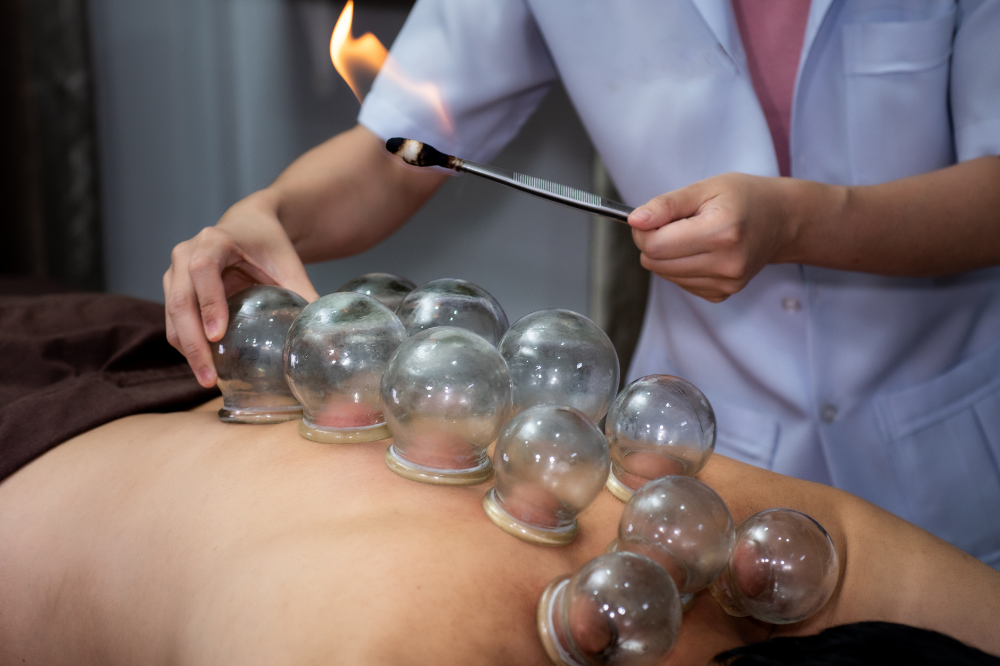Introduction to acupuncture insurance coverage

As acupuncture becomes more mainstream, more insurance companies are beginning to offer coverage for the treatment. However, coverage can vary widely from one insurer to the next. Some companies may only cover acupuncture if it is used to treat a specific condition, while others may provide general coverage for any type of acupuncture treatment. Some insurers may also limit the number of visits or prohibit coverage for pre-existing conditions.
If you are interested in trying acupuncture, it is important to check with your insurance company to see if they offer any coverage for the treatment. Acupuncture can be an effective way to treat a variety of conditions, but it is important to make sure that you are covered before you begin treatment.
What are the benefits of acupuncture insurance coverage?
Acupuncture insurance coverage can provide many benefits for those who receive acupuncture treatments. Acupuncture is considered a complementary and integrative health modality, and as such, is often not covered by traditional health insurance plans. However, more and more insurance companies are beginning to offer acupuncture insurance coverage as part of their plans. This coverage can help to offset the cost of acupuncture treatments, making them more affordable for patients.
In addition, acupuncture insurance coverage can also help to raise awareness of acupuncture as a valuable health modality, and increase its accessibility to more people. As a result, acupuncture insurance coverage can positively impact individual patients and the acupuncture profession as a whole.
How can I get acupuncture insurance coverage?
Acupuncture is a type of alternative medicine that has been used for thousands of years to treat various conditions. In recent years, acupuncture has been gaining popularity in the United States, as more and more healthcare providers are offering acupuncture treatments. However, acupuncture is not typically covered by health insurance plans. If you are interested in acupuncture, you may be wondering how you can get acupuncture insurance coverage.
One option is to check with your health insurance provider to see if they offer any coverage for acupuncture treatments. Many healthcare providers are now starting to offer acupuncture as a covered service, so it is worth checking to see if your provider offers any coverage. Another option is to research acupuncture clinics that offer sliding scale fees or accept Medicaid services.
The National Center for Complementary and Integrative Health is a good resource for finding acupuncture clinics in your area. Finally, some states have passed laws mandating that health insurance plans must cover acupuncture treatments. If you live in one of these states, you should be able to get acupuncture insurance coverage through your health insurance plan.
What should I look for in an acupuncture insurance policy?

Acupuncture is a popular and effective therapy for a variety of conditions, from pain management to stress relief. When choosing an acupuncture insurance policy, it’s important to make sure that the plan covers acupuncture treatments. Many acupuncture patients also receive other services, such as massage or chiropractic care, so it’s also a good idea to look for a policy that covers integrative health services. In addition, acupuncture therapy is often used in conjunction with other modalities such as herbs and cupping, so it’s important to find a policy that covers these additional services. With so many acupuncture insurance options available, it’s important to do your research to find the best policy for your needs.
How much does acupuncture insurance coverage cost?
Acupuncture insurance coverage can vary in cost depending on the provider and the type of plan. In general, acupuncture insurance plans will cover a certain percentage of the cost of treatment, with the patient responsible for the remainder. Some providers may offer a discount for acupuncturists who are members of certain organizations, such as the National Certification Commission for Acupuncture and Oriental Medicine.
Patients should contact their insurance provider to find out what their specific coverage entails. In some cases, acupuncture may be covered under a health care flexible spending account or health savings account. These accounts allow patients to set aside pre-tax money to be used for qualifying medical expenses. Overall, acupuncture insurance coverage can be an affordable way to access this important form of health care.
What are the different types of acupuncture insurance coverage?

There are many different types of acupuncture insurance coverage, and the type of coverage you have will depend on your insurance company and policy. Some common types of acupuncture insurance coverage include:
– Acupuncture for pain relief
– Acupuncture for fertility treatment

Acupuncture for stress relief
– Acupuncture for migraines
– Acupuncture for anxiety
– Acupuncture for depression
Acupuncture is becoming increasingly popular as an alternative or complementary therapy, and more and more insurance companies are beginning to offer coverage for it. If you’re interested in acupuncture, be sure to check with your insurance company to see what type of coverage they offer.
Acupuncture insurance coverage for pain relief
Acupuncture is a popular treatment for pain relief, and many insurance companies now offer coverage for this alternative therapy. If you’re considering acupuncture for pain relief, check with your insurance provider to see if it’s covered under your plan.
Acupuncture works by stimulating the body’s natural healing process. It is believed to help relieve pain by releasing endorphins, the body’s natural pain-relieving chemicals. Acupuncture has been shown to be effective in treating a variety of conditions, including:
– Arthritis
– Back pain
– Headaches
– Migraines
– Menstrual cramps
– Neuropathic pain (pain caused by nerve damage)
– Postoperative pain
– Sciatica
If you’re considering acupuncture for pain relief, talk to your doctor about whether it’s right for you. Once you’ve decided to give it a try, find a licensed acupuncturist in your area. Make sure the practitioner is certified by the National Certification Commission for Acupuncture and Oriental Medicine (NCCAOM).
Acupuncture insurance coverage for fertility treatment
Many insurance companies do not cover acupuncture for fertility treatments, deeming it to be an alternative or experimental therapy. However, there is a growing body of evidence that acupuncture can be an effective treatment for infertility. In a study of over 600 women undergoing in vitro fertilization (IVF), those who received acupuncture before and after embryo transfer had a significantly higher pregnancy rate than those who did not receive acupuncture. Acupuncture has also been shown to improve blood flow to the uterus and ovaries, reduce stress levels, and improve fertility hormone levels.
As more and more research is conducted on the potential benefits of acupuncture for fertility, it is likely that insurance coverage will eventually catch up. In the meantime, many fertility clinics offer affordable group acupuncture treatments that can help offset the cost.
Acupuncture insurance coverage for stress relief
Many people today are looking for ways to reduce stress in their lives. Unfortunately, the cost of traditional therapies can be prohibitive for many people. However, there is some good news: more and more insurance companies are beginning to cover acupuncture for stress relief. Acupuncture is a centuries-old therapy that involves placing thin needles in specific points on the body. This helps to release tension and promote relaxation. In addition, acupuncture can help to boost the immune system and increase energy levels. As a result, it can be an effective way to combat stress. If you’re looking for a way to reduce stress, talk to your doctor about whether acupuncture might be right for you. With increasing insurance coverage, it’s becoming more and more accessible.
Acupuncture insurance coverage for migraines
According to a recent study, acupuncture may be an effective treatment for migraines. The study found that patients who received acupuncture treatments had fewer migraines than those who did not. In addition, the patients who received acupuncture treatments also had less severe migraines when they did have them. As a result of this study, many insurance companies are now beginning to cover acupuncture treatments for migraines. This is good news for migraine sufferers, as acupuncture can be a very effective treatment for their condition.
Acupuncture insurance coverage for anxiety
The ancient Chinese practice of acupuncture has been used for centuries to treat a variety of ailments. In recent years, acupuncture has gained popularity in the Western world as an alternative treatment for conditions like anxiety and stress. A growing body of research suggests that acupuncture can be an effective treatment for anxiety, and many insurance companies now offer coverage for this therapy. While the exact mechanisms are not yet understood, it is believed that acupuncture helps to regulate the body’s nervous system, resulting in a reduction in anxiety levels. Acupuncture is generally considered to be a safe treatment with few side effects. Some insurance plans also cover other forms of alternative medicine, such as massage therapy and meditation, which can also be helpful in managing anxiety.
Acupuncture insurance coverage for depression
According to the World Health Organization, depression is the leading cause of disability worldwide, and it is estimated that more than 300 million people suffer from the condition. While there are a variety of treatments available, many patients do not respond well to traditional therapies such as antidepressants and talk therapy. For these individuals, acupuncture may be an effective treatment option. In fact, a growing body of research suggests that acupuncture can be an effective tool in the treatment of depression. However, insurance coverage for acupuncture is often limited, leaving many patients unable to afford this potentially life-changing treatment.
It is important for policy-makers to take into account the evidence supporting the efficacy of acupuncture in the treatment of depression when making decisions about insurance coverage. By ensuring that acupuncture is covered by insurance, we can give millions of people suffering from depression access to this potentially life-saving treatment.
Different types of acupuncture insurance coverage plans and what they typically cover.
There are a few different types of acupuncture insurance coverage plans available. The most common type is called PPO, or Preferred Provider Organization. This type of plan allows you to visit any licensed acupuncturist that participates with the insurance company.
The second type of plan is an HMO, or Health Maintenance Organization. This type of plan requires you to select a primary care physician (PCP) from a list of in-network providers. Your PCP will then refer you to an in-network acupuncturist. Both PPO and HMO plans typically have co-pays or deductibles that must be met before coverage kicks in.
The third type of acupuncture insurance coverage is through workers’ compensation. This type of coverage is typically offered to those who were injured on the job. In order to qualify, you must have a doctor’s note stating that acupuncture is medically necessary for your treatment. Workers’ compensation plans typically cover 100% of the cost of acupuncture, with no out-of-pocket expenses.
There are also a few other types of acupuncture insurance coverage plans available, but they are less common. These include indemnity plans, which allow you to visit any licensed acupuncturist; managed care plans, which are similar to HMOs but may have more restrictions; and direct payment plans, in which you pay the acupuncturist directly and then submit a claim to the insurance company for reimbursement.
No matter what type of acupuncture insurance coverage you have, it’s important to check with your insurance company to find out what is covered and what is not. Each plan is different, and coverage can vary depending on the state in which you live. If you have any questions, your acupuncturist should be able to help you navigate your particular plan.
How to find which acupuncture insurance option is best for me?
Trying to figure out which acupuncture insurance option is best for you can feel like a daunting task. There are so many companies and plans out there, and it can be hard to know where to start. However, there are a few things you can do to narrow down your options and find the right plan for you.
First, think about what your needs are. Do you need coverage for just acupuncture treatments, or do you also want coverage for other alternative therapies? Once you know what you need, you can start looking at different plans and comparing their coverage levels. It’s also important to consider your budget when choosing an insurance plan. You don’t want to end up paying more than you can afford, so be sure to compare the costs of different plans before making a decision. By taking the time to do some research, you can be sure to find an acupuncture insurance option that’s right for you.
How do I find an acupuncturist that takes my insurance?
Trying to find a healthcare provider that takes your insurance can be a frustrating experience. However, it is important to remember that there are a number of resources available to help you in your search. Your first step should be to contact your insurance company directly and ask for a list of providers in your area. You can also visit the website of the American Association of Acupuncture and Oriental Medicine, which offers a searchable database of acupuncturists. In addition, many community health centers offer affordable acupuncture services, so be sure to check with your local center to see if they have any recommendations. With a little bit of effort, you should be able to find an acupuncturist that meets your needs.
What other options are available if my insurance doesn't cover acupuncture?
According to the National Institutes of Health, acupuncture is a form of alternative medicine that has been used for centuries to treat a variety of conditions. While it is generally considered safe, there are some risks associated with the practice. One of the most common concerns is whether or not insurance will cover the cost of treatment. Unfortunately, coverage for acupuncture can be very limited. However, there are several other options available if your insurance doesn’t cover acupuncture.
For instance, many acupuncturists offer sliding-scale fees based on income, and some offer discounts for seniors or military personnel. Additionally, some states offer Medicaid programs that cover acupuncture treatments. Finally, there are a number of private foundations and organizations that provide financial assistance for this type of care. With a little bit of research, you should be able to find an affordable option for acupuncture treatment.
What are the risks of acupuncture?
1. Infection.
There is a small risk of infection from using acupuncture needles. The risk is even smaller if the needles are used only once and then disposed of properly.
2. Bleeding or bruising.
There is a small risk of bleeding or bruising at the needle site.
3. Pain at the needle site.
Some people feel pain when the needles are inserted. This pain should go away quickly.
4. Swelling or inflammation at the needle site. Again, this should go away quickly.
5. Fainting or dizziness.
This can happen if you have low blood sugar levels or if you’re feeling anxious about the procedure. It’s important to tell your acupuncturist if you have a history of fainting or dizziness.
6. Headache.
There is a small risk of developing a headache after acupuncture.
7. Exacerbation of symptoms.
In some cases, acupuncture can make your symptoms worse. This is more likely to happen if you have a condition that is not well-understood or if you are receiving treatment for the first time.
8. Needle stick injury.
If you are not careful, you could stick yourself with the needles used in acupuncture. This is more likely to happen if you are doing the procedure yourself or if the needles are not sterilized properly.
Acupuncture is generally considered safe when it’s performed by a trained and licensed practitioner. However, there are some risks associated with the procedure. Make sure to discuss these risks with your acupuncturist before you undergo treatment.
Is acupuncture worth it?
Acupuncture is a form of traditional Chinese medicine that has been used for centuries to treat a variety of conditions. The theory behind acupuncture is that it can help to balance the flow of energy in the body and thus alleviate pain. While acupuncture has been shown to be effective for some people, there is still much debate about whether or not it is truly worth it. One major concern is that acupuncture can be quite expensive, particularly if you need to see a practitioner on a regular basis. In addition, there is always the risk of side effects, such as bruising or infection at the site of the needles.
For these reasons, some people feel that acupuncture is not worth the risk or expense. However, others believe that the potential benefits outweigh any risks, and that acupuncture is an effective way to relieve pain and promote healing. Ultimately, the decision of whether or not to try acupuncture is a personal one.
How often should I get acupuncture treatments?
Acupuncture is a form of traditional Chinese medicine that has been used for centuries to treat a variety of conditions. The practice involves inserting thin needles into the body at specific points, known as acupuncture points. These points are believed to be located along energy pathways, or meridians, that run throughout the body. stimulating these points can help to balance the flow of energy and relieve symptoms. But how often should you get acupuncture treatments?
The frequency of acupuncture treatments will depend on the condition being treated. For some conditions, such as chronic pain or stress, a series of weekly treatments may be recommended initially. As the condition begins to improve, treatments can be spaced out to once every two weeks and then once a month. For other conditions, such as seasonal allergies or migraines, treatment may only be needed a few times a year. Ultimately, the decision about how often to receive acupuncture will be made by you and your practitioner based on your individual needs.
How will I know if acupuncture is working for me?
The benefits of acupuncture can be wide-ranging and subtle. For some people, relief from pain and other symptoms is immediate. For others, it may take a few treatments before they notice an improvement. Sometimes the effects of acupuncture are cumulative, so it may take several weeks or longer to see the full benefit. Many people find that they feel more relaxed after a treatment, even if they don’t notice any other changes. If you’re unsure whether acupuncture is working for you, the best thing to do is to talk to your acupuncturist. They will be able to give you an idea of what to expect and how long it may take for you to see results.
How do I prepare for my first acupuncture treatment?
Acupuncture is a safe and effective form of alternative medicine that has been used for centuries to treat a variety of conditions. If you are considering acupuncture for the first time, it is important to know what to expect. Most acupuncture treatments last for 30-60 minutes, during which time the practitioner will insert thin needles into specific points on your body. You may feel a brief sensation as the needles are inserted, but the majority of patients report feeling relaxed during the treatment.
It is important to wear loose, comfortable clothing to your appointment, as tight clothing can interfere with the placement of the needles. You should also eat a light meal before your treatment, as acupuncture can sometimes cause dizziness or nausea. Once your treatment is complete, you will likely feel calm and relaxed. With regular treatments, you can experience long-term relief from chronic pain, stress, anxiety, and other health issues.
How long does an acupuncture treatment take?
The basic principle behind acupuncture is that there are certain points on the body that can be stimulated in order to relieve pain or promote healing. Acupuncture treatments typically last between 30 and 60 minutes, during which time the practitioner will insert thin needles into the skin at specific points. Some people may feel a slight prick when the needles are inserted, but the vast majority of patients find the treatment to be completely painless. In addition to relieving pain, acupuncture has also been shown to be effective for treating a number of other conditions such as headaches, nausea, and fatigue.
How many acupuncture treatments will I need?
The number of acupuncture treatments you will need will depend on a number of factors, including the severity of your condition, your overall health, and your response to treatment. In general, acute conditions tend to resolve more quickly than chronic conditions. However, even for acute conditions, a series of treatments is often necessary in order to achieve the desired results. For chronic conditions, ongoing treatment may be necessary in order to manage symptoms and maintain a sense of well-being. Ultimately, the number of acupuncture treatments you will need will be determined by your practitioner based on your individual needs.
Will my insurance cover more than one type of acupuncture treatment?
It depends on your insurance policy. Some insurance companies will cover multiple types of acupuncture treatments, while others will only cover one. If you’re unsure, it’s best to contact your insurance company and ask them about their coverage. In general, though, most insurance companies will only cover one type of acupuncture treatment per person. This means that if you want to try a different type of acupuncture, you’ll likely have to pay for it out of pocket. However, some insurance companies will offer discounts for multiple treatments, so it’s always worth checking with your insurer to see what they offer.
Bottom Line
Acupuncture is a safe and effective treatment that has been used for centuries to improve health. While acupuncture was once considered an experimental therapy, it is now covered by many insurance plans. If you are considering acupuncture treatment, be sure to check your insurance policy to see if you have coverage for this type of therapy. The benefits of acupuncture insurance coverage include pain relief, fertility treatment, stress relief, migraines, anxiety, and depression. There are several different types of acupuncture insurance coverage plans available, so be sure to compare policies and find the one that best meets your needs.











